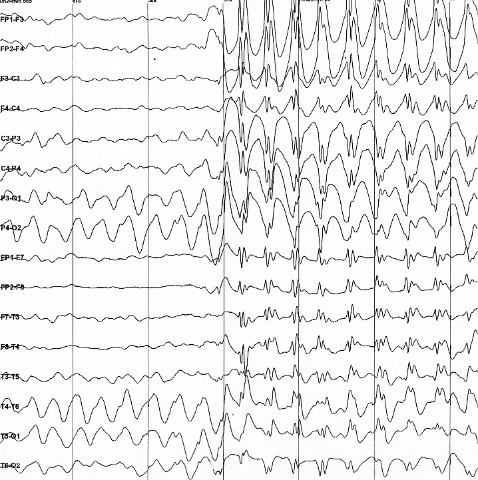
An international team of researchers led by Cleveland Clinic has developed new genetic-based epilepsy risk scores which may lay the foundation for a more personalized method of epilepsy diagnosis and treatment. This analysis is the largest study of epilepsy genetics to date, as well as the largest study of epilepsy using human samples.
Published in the journal Brain, the research team, led by Dennis Lal, Ph.D., a researcher in Cleveland Clinic’s Genomic Medicine Institute, calculated for the first time quantitative scores that reflect overall genetic risk for epilepsy, called polygenic risk scores. They showed that these scores can accurately distinguish on a cohort level between healthy patients and those with epilepsy, as well as between patients with generalized and focal epilepsies.
After the first seizure, it can be difficult for clinicians to predict which patients will go on to develop epilepsy. Development of these novel genetic risk scores could help clinicians to intervene and treat patients earlier.
“The fact that we can now identify people at high risk for epilepsy, and even start to distinguish between the two main types of epilepsy, based on genetic scores is really exciting,” said Lal, the study’s lead author. “These landmark results set the stage for an entirely new direction of epilepsy research.”
Up to 40% of cases of rare neurological disorders that present with seizures can be explained by a single rare disease-causing genetic variant. Personalized therapies are in development to treat patients with many of these genes. In contrast, up until this point, the role genetic factors play in common forms of epilepsy have not guided disease management and treatment plans.
While genome-wide association studies (GWAS) have identified several common genetic variants for epilepsy, it is challenging to quantify an individual patient’s genetic risk based on these variants due to small effect size (an indicator of the strength of an association). Additionally, analyzing a single common genetic risk variant does not take into consideration the effect other variants may have on overall epilepsy risk.
To address this unmet clinical need, Dr. Lal and collaborators combined all known common genetic variants identified from several large GWAS cohorts, which included more than 12,000 people with epilepsy and 24,000 healthy controls, to calculate the polygenic risk scores in more than 8,000 people with epilepsy and 622,000 population controls. By combining the effect sizes of thousands of common genetic variants, these scores can be used to determine an individual’s risk for epilepsy.
Polygenic risk scores have been shown to have predictive and diagnostic power in a variety of medical conditions, including myocardial infarction, diabetes, and breast cancer. This study was the first to examine them in the context of epilepsy. The research team showed that the predictive power of the polygenic risk scores developed in this study performed as well when applied to patients receiving routine clinical care.
“While additional research is necessary, we believe these findings will lay the groundwork for one day using genetic risk assessments in the clinic to diagnose common epilepsies and guide precision treatment earlier in the disease process,” said Imad Najm, M.D., director of Cleveland Clinic’s Epilepsy Center and co-author on the study.
Source: Read Full Article



